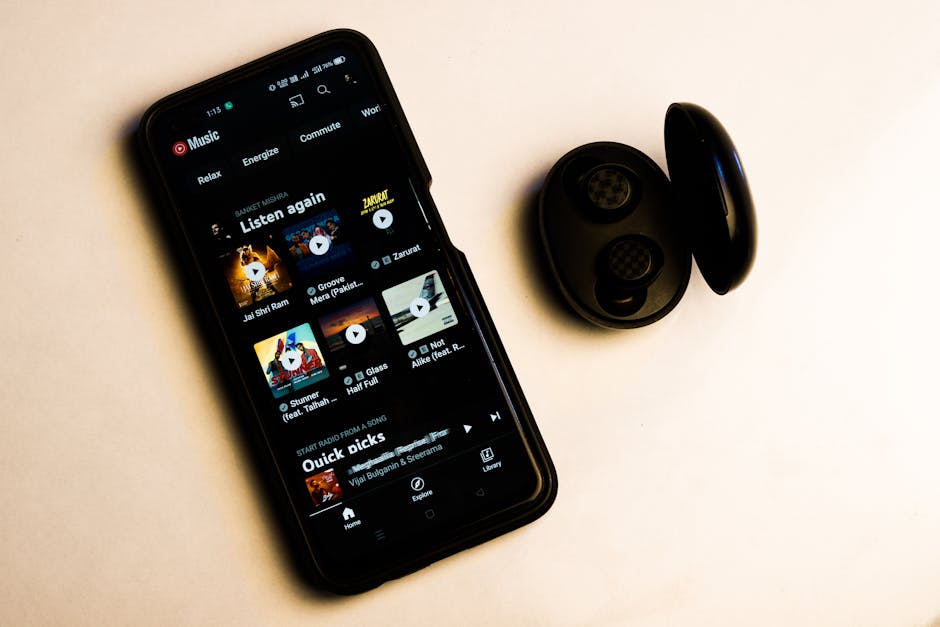So, you’ve just seen a Reddit post or a Twitter thread screaming about Qobuz going under. Scared your playlists will vanish overnight? Let’s hit pause. Sometimes a panic spiral needs, well, a bit less drama and a lot more evidence. Grab a coffee—the answers here are punchy, clear, and filtered for the modern business brain.
What Is Qobuz, and Why Is Everyone Whispering About Its Demise?
Qobuz is that lesser-known cousin at the streaming party—quiet, well-dressed, serving up rare audiophile treats while everyone else cranks out the same Top 40 on repeat. The French-born service launched in 2007, offering high-resolution, lossless audio and liner notes for people who think “MP3” is a dirty word. If Spotify is a streaming buffet, Qobuz is your neighborhood record store—selective, surprisingly hip, and unapologetically premium.
Lately, rumors suggest Qobuz might be facing its final curtain call. Industry banter, anxious forum posts, and occasional subscriber hiccups have people asking: Is Qobuz about to ghost the music world? Short answer: Nope—not only is Qobuz not going out of business, but it’s also quietly expanding, innovating, and earning positive marks from both artists and users.
Let’s cut through the static.
Is Qobuz Actually in Trouble?
Why are people even concerned? Qobuz remains niche compared to the behemoths like Spotify and Apple Music, yes. Prices are steeper, and it doesn’t shower you in podcasts or playlists featuring the “hottest new EDM drops.” But here’s the thing—Qobuz is very much open for business. In fact, as of August 2025, every sign points to stability, growth, and even some muscle-flexing moves in the high-end music arena.
Biggest data point? There’s zero credible reporting or leaks hinting at bankruptcy, sale talks, or shutdowns on the horizon. In the fast-moving music tech world, silences like that speak volumes.
Global Expansion: The Japan Play and Fresh Formats
If a company is packing its bags, it’s not opening shop in new territories—right? Qobuz did the opposite. In 2024, it rolled out services in Japan—a market famous for deep-pocketed music lovers and a culture that prizes sonic quality.
What’s in it for Qobuz (and its users)? More markets, more revenue, and more proof that its business model clicks with serious listeners. It’s also not just about geography; Qobuz dropped new audio formats and exclusive releases, deepening its niche as the streaming platform for hi-fi devotees.
Why it matters: Survival in music streaming often boils down to relevance. You don’t launch in Japan in a panic; you do it because you smell opportunity.
Strategic Partnerships: Teaming Up With the Audio Elite
Still not satisfied? Let’s talk alliances. Qobuz scored a high-profile partnership with Linn Records—yes, the Scottish audio brand with a borderline obsessive fanbase. All of Linn’s high-res catalog is now officially streaming on Qobuz. That’s not just bragging rights; it’s a major trust handshake from one respected expert to another.
Think of it like Nike and Apple teaming up on smart running shoes. You don’t make that bet if one of you is about to close shop.
Financial Health—The Indie Audit and Fair Royalties Angle
Here’s where things get spicy. Most streaming services pay artists beans per stream. Qobuz, on the other hand, scored big in a 2025 independent audit—it pays among the highest average royalties per stream in the industry.
What’s in it for artists and rights holders? A platform that isn’t just extracting value, but actually sharing it—fairly and transparently. Qobuz’s indie audit made waves precisely because it’s so rare in streaming. If fair payouts and ethical business models are your jam, this is cause for cautious optimism.
Why it matters: In a sector littered with unicorn burnouts and sudden shutdowns, financial transparency is practically a superpower. Qobuz wearing this badge signals confidence and staying power.
Artist-Friendly Reputation—Marketing or Mission?
Plenty of tech companies pretend to care about creators. Qobuz is a little different. It keeps wooing independent artists and labels with its “no algorithmic gatekeeping” pitch and open communication style.
One example: When Taylor Swift yanked her catalog from Spotify years ago, indie artists everywhere started demanding a better deal—and services like Qobuz capitalized.
For music professionals, this matters: you want your work out there, and you want to trust the people delivering it. In that context, Qobuz is scoring repeat points.
Audiophiles Only? Qobuz’s Commitment to High-Resolution Sound
Let’s get real—Qobuz is not trying to be everything to everyone. If Spotify had a baby with a vintage tube amp, you’d get something a bit like this. Their pitch: studio-quality 24-bit FLAC, rare finds, lossless that’d make your headphones blush. Yes, you pay more, but you also get jaw-dropping fidelity… and bragging rights.
What’s in it for regular users? If you don’t have $500 headphones and a golden ear, maybe not much. But if you care—really care—about nuance and detail, this is your happy place.
User engagement? Surprisingly strong, considering the price tag. Qobuz has built a community that sticks around for the good stuff, not just the quick hits.
How Does Qobuz Stack Up Against the Mainstream Heavyweights?
Is it winning by subscriber count? Not even close. But that’s missing the point. Think of Qobuz as a boutique suit shop in a mall of fast-fashion giants. It’s never crowded, but every shopper comes to buy. While Spotify chases the masses, Qobuz wants the core of audiophile superfans—the types who still buy vinyl AND digital.
Why it matters: Experiences convert curiosity into intent. Qobuz sells experience over algorithms … and it works for its tribe.
What Are Users Actually Complaining About?
Serious question—if Qobuz is so stable and beloved, why the scare stories? Here’s what loyalists actually grumble about:
- Changes to parts of the music catalog, which can make rare albums vanish unexpectedly.
- Some glitches or stability hiccups with mobile and desktop apps—especially after updates.
- Occasional sticker shock over the monthly cost, especially for folks used to $10 “all you can eat” deals.
But let’s be clear: these are fixable product headaches, not evidence of a company running out of cash. Users who stick with Qobuz do it for the music and the mission, not for flawless UX.
Kicker: If app annoyances killed companies, half the SaaS world would be gone tonight.
Where’s the Money Going—and Will Qobuz Survive?
Investors track user numbers and growth rates like hawks. Here’s what Qobuz has going for it:
- A grown-up focus on profitable, premium markets (not burning capital on influencer stunts or “original podcasts” nobody listens to).
- Solid engagement from users who care enough to pay extra.
- A business model that makes sense for a specific, sticky audience—in short, those least likely to cancel after a free trial ends.
Meanwhile, Qobuz’s revenue lines are moving the right way. It has kept course during a rough patch where even big players (hi, TIDAL) struggled. And Qobuz’s ability to ink new industry partnerships suggests others see it as stable, too.
Your takeaway: a company expanding markets, landing prestige alliances, and paying artists fairly is not lining up for liquidation.
And if you want more real-time business tea and strategic takes on brands outsmarting their Goliath-sized rivals, check out Aspire Biz Daily—because the music business moves fast, and you want the inside scoop.
Qobuz in 2025: Still Playing Strong
Qobuz isn’t the streaming world’s loudest player—but it’s durable. Its journey is the tortoise, not the hare: slower moves, smarter alliances, premium over volume. You won’t see headlines about flashy IPOs, but you’ll see steady upgrades, loyal fans, and checks cashed by the artists that matter.
Will the rumors crop up again next year? Probably. Will Qobuz still be serving up rare high-res jazz box sets and deep-cut classical? Signs point to yes.
For audiophiles, music pros, and business-watchers alike—Qobuz is a case study in doing one thing well. To everyone waiting for a bankruptcy announcement, keep waiting. Meanwhile, Qobuz is still streaming…and sharper ears are still listening.
Also Read:



























